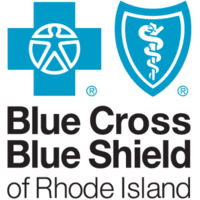PROVIDENCE – A new public health dashboard created by Blue Cross & Blue Shield of Rhode Island is helping the insurer and health care systems pinpoint those most at risk for COVID-19.
The program is also designed to help identify Blue Cross members who may need assistance while staying at home due to the pandemic.
Based on risk factors used by the Centers for Disease Control and Prevention, the dashboard takes into account preexisting conditions, age and nursing home admissions.
“The BCBSRI risk score is unique in that it is able to leverage a broad base of factors based on a combination of data, including 12 months of claims, social vulnerability index, hospital admissions and discharges, public health data such as coronavirus cases recorded by the R.I. Department of Health and other private data sources,” said Amar Gurivireddygari, Blue Cross chief data and analytics officer. “The result: a data-driven, targeted response to COVID-19 that maximizes available medical resources for at-risk members,”
Incorporation of the CDC’s Social Vulnerability Index has helped health care systems such as Coastal Medical Inc. use the dashboard to alert patients who may not previously have been considered vulnerable.
According to the CDC, circumstances such as living with a child under 17, an adult over 65, a person with disabilities, or in densely populated housing carry an added weight of risk during pandemic times.
“The dashboard gives us a broader view of our patients, allowing us to provide outreach to every single vulnerable patient and connect them with the right sources within our Coastal system,” said Sarah Thompson, Coastal Medical vice president of clinical operations and pharmacy. “This effort included our primary care providers and offices, nurse care management, behavioral health and our pharmacy teams.”
Blue Cross has also made use of social vulnerability data, placing nearly 1,000 calls to members to alert them of risk and offer help with services such as establishing mail-order prescription refills or taking advantage of a wellness reimbursement to stay active at home.
Elizabeth Graham is a PBN contributing writer.













